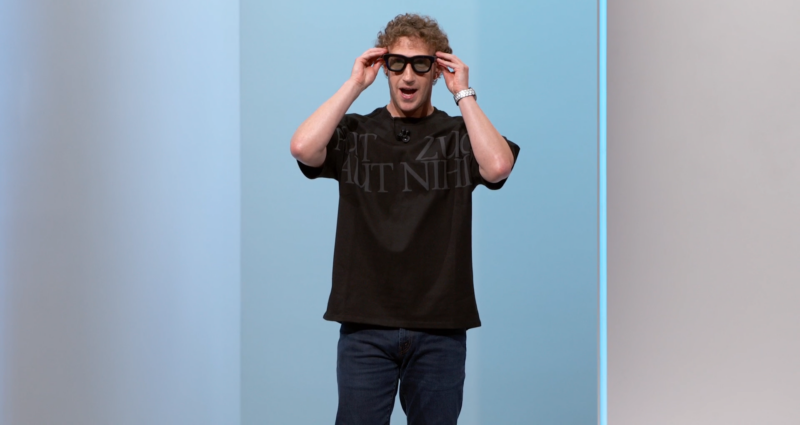Meta’s new lightweight AR prototype shows a future beyond bulky VR headsets

Enlarge / The future’s so bright, Mark Zuckerberg’s gotta wear shades. (credit: Meta)
Thus far, Meta’s heavily money-losing Reality Labs division has been primarily focused on bulky virtual reality headsets (and some odd, display-free Ray-Ban branded sunglasses). So when Meta CEO Mark Zuckerberg pulled out a 100 g pair of see-through, augmented-reality glasses at this year’s Meta Connect keynote, it represented a bit of a new direction for the company.
The prototype Orion AR glasses Zuckerberg showed off today don’t mean Meta will be ready to release a pair of consumer AR glasses anytime soon. But the demo represents a new vision for lightweight, wide-ranging, see-through smartglasses that Zuckerberg calls “a glimpse of the future” and “the dream of Reality Labs.”
Not your average screen
The core challenge of building a pair of comfortable augmented-reality glasses, Zuckerberg said, is that “they have to be glasses.” That means no bulky headset (a la Quest), no wires (a la Apple Vision Pro), and a weight of less than 100 grams (compared to a full 515 g for the Meta Quest 3). While there’s a tiny battery and “custom silicon” in those lightweight glasses, Zuckerberg admitted that some processing is done in a “small puck” that connects wirelessly to the glasses themselves.
